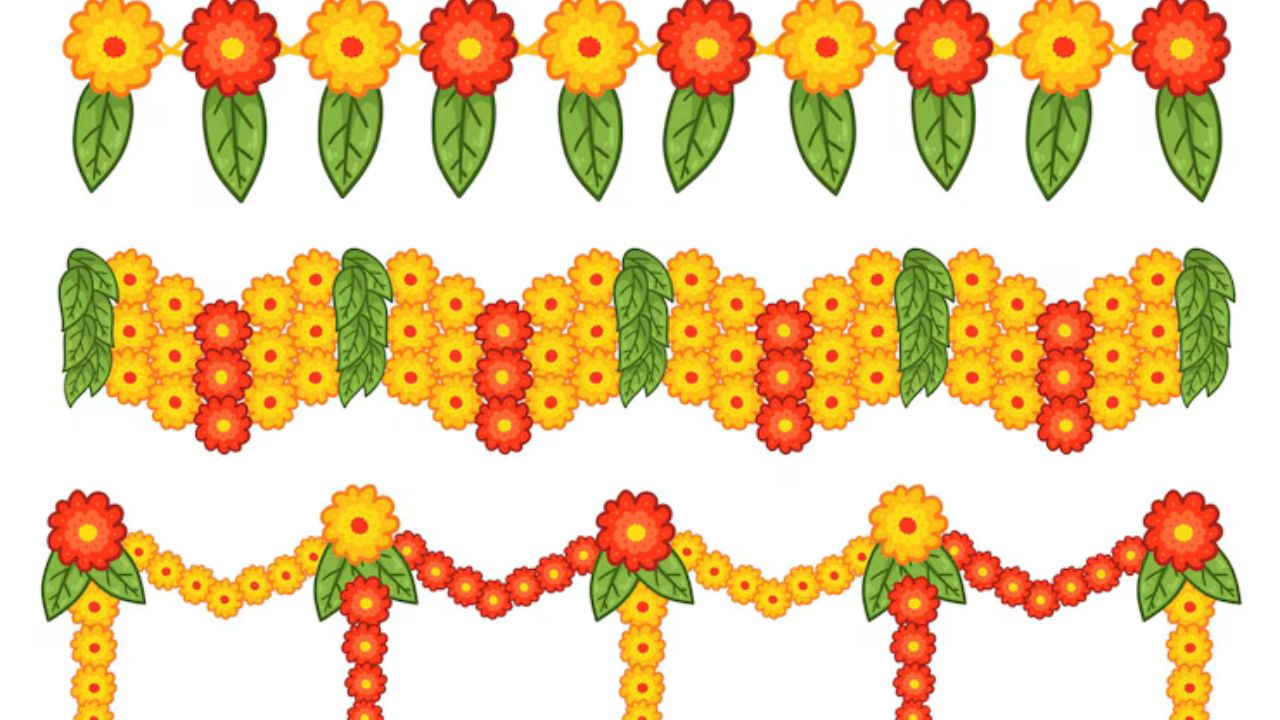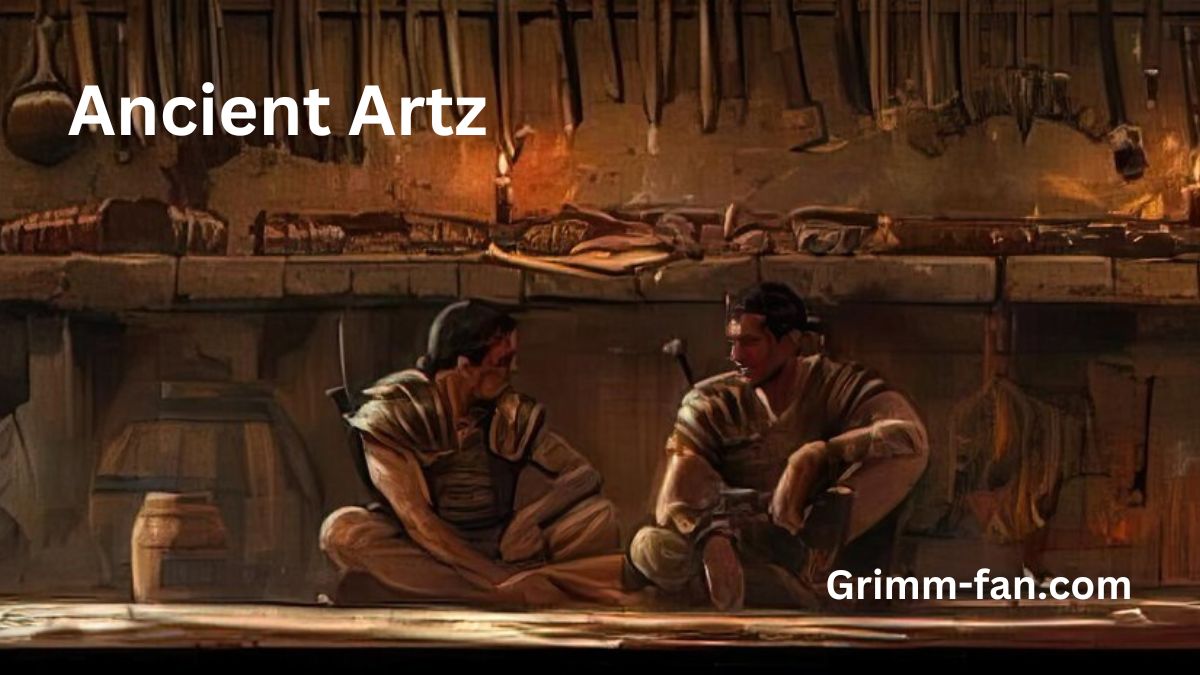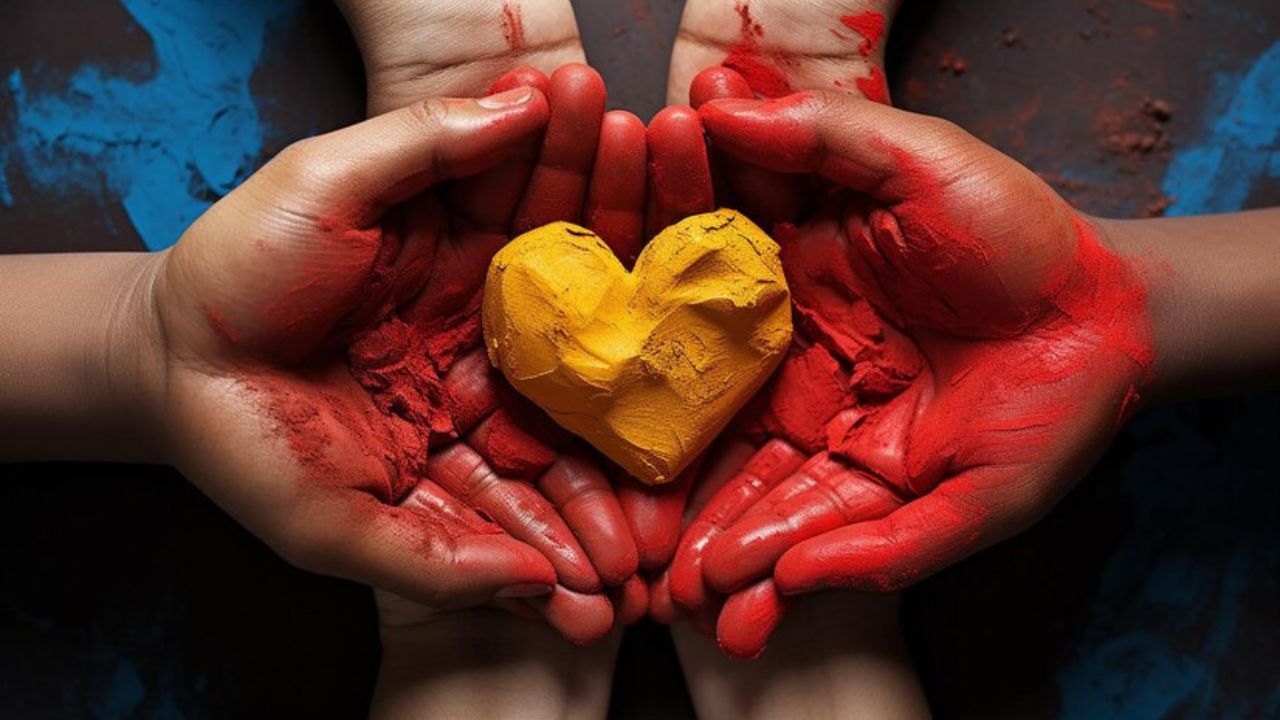ART
The Artistic Revolution of the Mollar CGT 20750 Drawing

The world of art has forever been intertwined with the evolution of technology. Each brushstroke, chisel mark, or pixel created reflects a moment where creativity meets innovation. Today, we stand at the forefront of a new artistic revolution, led by the Mollar CGT 20750 Drawing. This remarkable tool not only redefines what we consider possible in art creation but also bridges the gap between traditional techniques and cutting-edge technology. From professional artists to hobbyists, this tool promises to reshape how we think about drawing and design.
In this blog post, we’ll explore the fascinating aspects of the Mollar CGT 20750 Drawing, from its inception to its impact on the art community. We will uncover how it integrates with modern technology, the ways it enhances creativity, and the potential it holds for future generations of artists. By the end, you’ll have a comprehensive understanding of why this innovative tool is capturing the imagination of artists around the globe.
Journey from Concept to Creation
Every groundbreaking tool begins as an idea. The Mollar CGT 20750 Drawing started as a vision to merge classical artistry with the digital age’s precision. Engineers and artists collaborated, focusing on creating a drawing experience that could seamlessly blend the tactile satisfaction of pencils on paper with the accuracy and flexibility of digital tools. This synthesis aimed to offer artists an unparalleled degree of control over their creations.
The design process was meticulous, with prototypes undergoing rigorous testing for both functionality and user experience. Artists from various disciplines provided feedback, ensuring the final product was not just technically sound but also intuitive and inspiring to use. This collaborative approach helped hone a tool that resonates with diverse artistic styles and preferences.
By incorporating state-of-the-art technology, the Mollar CGT 20750 not only retained the essence of traditional drawing but elevated it. Its ability to mimic natural strokes while offering digital enhancements opened a new dimension for artists, encouraging exploration and experimentation.
Key Features of the Mollar CGT 20750
The brilliance of the Mollar CGT 20750 Drawing lies in its features meticulously designed to cater to artists’ needs. One of its standout elements is its pressure sensitivity, which allows for nuanced variations in line thickness and shading. This feature gives artists a level of detail control traditionally reserved for conventional drawing tools.
Another innovative aspect is its smart surface, designed to mimic the texture of traditional drawing paper. This not only provides a familiar tactile experience but also enhances precision by reducing slip errors common with smooth digital surfaces. The result is a more natural drawing experience, minimizing the learning curve for artists transitioning from traditional media.
Furthermore, the Mollar CGT 20750 integrates seamlessly with popular design software, enabling artists to easily incorporate their work into larger projects. Its compatibility allows for a fluid workflow, making it a versatile addition to any artist’s toolkit, whether they specialize in digital art, graphic design, or illustration.
The Impact on Contemporary Art
In the world of contemporary art, the Mollar CGT 20750 Drawing is making significant waves. It has become a catalyst for change, encouraging artists to push boundaries and explore new visual languages. The tool’s unique capabilities have been embraced by both emerging and established artists who desire to blend traditional techniques with digital innovation.
Artists report that the Mollar CGT 20750 has reignited their passion for creating. By providing the flexibility to experiment without constraints, it allows artists to break free from conventional formats. This liberation has led to a resurgence of creativity, where artists are more willing to take risks and venture into uncharted territories.
The tool has also played a role in democratizing art, making it accessible to a broader audience. Its intuitive design appeals to novices, inviting them to explore their artistic potential without intimidation. At the same time, seasoned professionals appreciate the sophistication it brings to their work, enabling them to refine their craft further.
Technological Integration with Artistic Expression
The fusion of technology and art is epitomized by the Mollar CGT 20750 Drawing, which serves as a bridge between these two worlds. Its sophisticated algorithms and sensors work in harmony to translate the artist’s intentions into digital form with remarkable accuracy. This seamless integration ensures that technology enhances rather than hinders the creative process.
One of the most exciting technological advancements in the Mollar CGT 20750 is its real-time feedback system. Artists receive instant visual cues and suggestions to improve their technique, akin to having a virtual art instructor. This feature empowers users to learn and grow, making it an invaluable educational tool for aspiring artists.
Additionally, the Mollar CGT 20750 supports connectivity with various devices, allowing artists to sync their work across platforms effortlessly. This cross-device compatibility means artists can start a project on their tablet and finish it on their desktop, providing flexibility and convenience in a fast-paced digital world.
Enhancing Creativity with the Mollar CGT 20750
Creativity thrives on exploration and innovation, and the Mollar CGT 20750 Drawing is designed to nurture these aspects. By removing traditional limitations, it encourages artists to experiment with styles, techniques, and mediums they may have previously overlooked. This newfound freedom often leads to unexpected discoveries and breakthroughs in artistic expression.
The tool’s versatility caters to a wide range of artistic endeavors, from sketching and illustration to detailed technical drawings. Its ability to adapt to different artistic styles makes it a valuable resource for creatives who dabble in multiple disciplines. Whether an artist is crafting a delicate watercolor piece or a bold digital graphic, the Mollar CGT 20750 rises to the occasion.
Furthermore, the Mollar CGT 20750 inspires collaboration among artists. Its digital format allows for easy sharing and joint projects, fostering a sense of community and collective creativity. Artists can work together from different corners of the globe, blending their unique perspectives into cohesive works of art.
The Role of AI in the Mollar CGT 20750
Artificial Intelligence plays a pivotal role in enhancing the capabilities of the Mollar CGT 20750 Drawing. The tool leverages AI to provide intelligent suggestions and corrections, assisting artists in achieving their creative vision. From recommending color palettes to optimizing composition, AI acts as a silent partner, offering guidance without stifling creativity.
One of the most remarkable AI features is its ability to learn from the artist’s style and preferences. Over time, the tool adapts to the user’s unique approach, providing increasingly personalized support. This dynamic interaction fosters a deeper connection between the artist and their medium, encouraging a more intuitive and fulfilling creative process.
AI also aids in streamlining repetitive tasks, such as resizing and formatting, allowing artists to focus on the more nuanced aspects of their work. This efficiency not only saves time but also enhances productivity, enabling artists to bring their ideas to life more swiftly and effectively.
The Educational Potential of the Mollar CGT 20750
The Mollar CGT 20750 Drawing is not just a tool for creating art; it’s also a powerful educational resource. Its user-friendly design and built-in tutorials make it an ideal platform for teaching art techniques and theory. Educators have begun integrating it into their curricula, using its features to engage students and enhance their learning experience.
For beginners, the Mollar CGT 20750 offers a gentle introduction to the world of art. Its guided exercises and challenges encourage practice and experimentation, building confidence and skill. Students can learn at their own pace, receiving instant feedback to help them refine their technique.
For advanced artists, the tool provides opportunities for continued growth and development. Its ability to mimic traditional media allows students to explore classic art forms, while its digital capabilities enable them to experiment with contemporary styles. This dual functionality ensures that the Mollar CGT 20750 remains relevant as students progress in their artistic journeys.
Preserving Tradition in a Digital Age
While the Mollar CGT 20750 Drawing embraces modern technology, it also pays homage to traditional art forms. Its design reflects a deep respect for the history of art, incorporating elements that evoke the tactile pleasure of working with physical media. This balance between old and new ensures that artists can enjoy the best of both worlds.
The tool’s ability to recreate the texture and feel of traditional materials is particularly appealing to artists who value the tactile aspects of their craft. Whether simulating the resistance of a pencil on paper or the smooth flow of ink, the Mollar CGT 20750 captures the essence of traditional techniques, providing a familiar yet enhanced experience.
By preserving the qualities that artists hold dear while introducing new possibilities, the Mollar CGT 20750 ensures that the rich legacy of art continues to thrive in a digital age. It acts as a bridge between past and present, allowing artists to draw inspiration from history while forging new paths forward.
The Future of Art with the Mollar CGT 20750
The Mollar CGT 20750 Drawing is more than just a tool; it is a glimpse into the future of art. Its innovative features and capabilities are paving the way for a new era of creativity, where the possibilities are limited only by imagination. As technology continues to evolve, so too will the potential of the Mollar CGT 20750, offering artists an ever-expanding canvas for their ideas.
In the coming years, we can expect to see further advancements in AI and digital technologies, leading to even more sophisticated tools for artists. The Mollar CGT 20750 will undoubtedly be at the forefront of this evolution, continuing to inspire and empower artists to push the boundaries of what is possible.
Artists who embrace the Mollar CGT 20750 today are positioning themselves at the cutting edge of this exciting transformation. By harnessing its capabilities and exploring its potential, they are not only enhancing their own practice but also contributing to the ongoing dialogue about the intersection of art and technology.
Conclusion
The Mollar CGT 20750 Drawing represents a remarkable fusion of art and technology, offering artists a powerful tool to explore their creativity and push the boundaries of their craft. Its innovative features, user-friendly design, and seamless integration with modern technology make it an invaluable asset for artists of all levels.
By preserving the essence of traditional art forms while introducing new possibilities, the Mollar CGT 20750 ensures that the rich legacy of art continues to thrive in a digital age. Its ability to enhance creativity, streamline workflows, and provide educational opportunities makes it a vital resource for artists seeking to grow and evolve.
Whether you are a novice looking to explore your artistic potential or a seasoned professional seeking to refine your craft, the Mollar CGT 20750 Drawing offers a gateway to a world of limitless possibilities. Explore its features, harness its capabilities, and join the ranks of artists who are redefining the future of art.
ART
Dadiyanki: Unveiling the Mystery Behind the Enigmatic Term

Introduction
In the vast digital landscape, certain keywords emerge that pique curiosity and demand exploration. One such term is “Dadiyanki.” Despite its obscure nature, it has garnered attention across various online platform. But what exactly does Dadiyanki mean? Where does it originate, and why is it gaining traction?
This comprehensive guide delves into the depths of Dadiyanki, uncovering its possible meanings, cultural significance, and online presence. Whether you stumbled upon this term in a forum, social media, or a cryptic reference, this article will shed light on its mysteries while optimizing for SEO to ensure maximum visibility.
What is Dadiyanki?
1. Possible Meanings and Interpretations
The term does not have a widely recognized definition, leading to multiple interpretations:
-
A Name or Title: It could be a personal name, nickname, or title in a specific culture or community.
-
A Mythological or Folklore Reference: Some speculate it might relate to an ancient legend or mythical entity.
-
A Code or Slang Term: In online communities, unique words often serve as inside jokes or coded language.
-
A Fictional Concept: It might originate from a book, game, or obscure piece of media.
2. Cultural and Linguistic Roots
Breaking down the word:
-
“Dadi” – In Hindi and Urdu, “Dadi” means grandmother, hinting at a possible connection to familial or ancestral themes.
-
“Yanki” – This could relate to “Yankee” (a term for Americans) or have roots in Japanese culture (where “yanki” refers to delinquent youth).
Combining these, Dadiyanki might symbolize a fusion of cultures or represent a unique identity blending tradition and rebellion.
The Online Presence of Dadiyanki
1. Social Media Trends
A quick search reveals sporadic mentions of on platforms like:
-
Twitter/X – Used in cryptic tweets or usernames.
-
Reddit – Appears in niche subreddits discussing obscure lore.
-
YouTube – Some videos reference Dadiyanki in titles, but with little context.
2. Possible Connection to Gaming or Anime
Given the structure of the word, it may be linked to:
-
Anime/Manga – Some fans speculate it’s a character or term from an obscure series.
-
Indie Games – Could be an Easter egg or hidden lore in a lesser-known game.
3. Meme Culture and Viral Mysteries
Like other enigmatic terms (“Siren Head,” “The Backrooms”), Dadiyanki might be part of an ARG (Alternate Reality Game) or viral mystery designed to engage online communities.
Why is Dadiyanki Gaining Attention?
1. The Allure of the Unknown
Humans are naturally drawn to mysteries. Words like Dadiyanki spark curiosity, leading to discussions, theories, and even fan creations.
2. SEO and Digital Footprint
As more people search for “Dadiyanki meaning” or “What is ?”, the term gains algorithmic traction, increasing its online presence.
3. Potential for Branding or Storytelling
Creative writers, game developers, or marketers might adopt as a unique brand name, character, or concept due to its catchy and mysterious aura.
How to Leverage Dadiyanki for SEO & Content Creation
If you’re a content creator or marketer, here’s how you can capitalize on this trend:
1. Create Engaging Content Around
-
Write blogs, make videos, or start discussions to attract curious audiences.
-
Use long-tail keywords like:
-
“Dadiyanki meaning and origin”
-
“Is a myth or real?”
-
“Dadiyanki in pop culture”
-
2. Build a Community or Forum
-
Start a subreddit, Discord server, or Facebook group dedicated to decoding Dadiyanki.
-
Encourage user-generated content (theories, fan art, stories).
3. Optimize for Search Engines
-
Use meta descriptions, alt text, and internal linking to boost SEO.
-
Target low-competition, high-interest keywords related to Dadiyanki.
Conclusion: The Future of Dadiyanki
While Dadiyanki remains shrouded in mystery, its growing intrigue makes it a fascinating subject for digital explorers, content creators, and SEO strategists. Whether it evolves into a viral phenomenon, a fictional universe, or fades into obscurity, one thing is certain—the internet loves a good mystery.
Will you be the one to uncover the truth behind ? Join the conversation and see where this enigmatic term leads!
ART
Ancient Artz Reveals the Unseen Masterpieces of History

Have you ever found yourself mesmerized by the intricate designs and profound stories captured in Ancient Artz? If so, you’re in the right place. This blog post will take you on a fascinating journey through time, exploring the artistry that has shaped civilizations and left an indelible mark on history. From the awe-inspiring cave paintings of Lascaux to the majestic sculptures of ancient Greece, we’ll unveil the hidden gems of ancient art that continue to captivate us today.
The Birth of Art in the Ancient Artz World
The story of art begins in the dim recesses of prehistory, where early humans took their first steps towards expression. In this section, we’ll explore how art originated and evolved in the Ancient Artz world.
The earliest examples of art can be traced back to the Pleistocene epoch, approximately 40,000 years ago. During this time, our ancestors began decorating cave walls with stunning depictions of animals and human figures. These early artworks, found in locations such as the Lascaux caves in France and the Altamira caves in Spain, provide invaluable insights into the lives and beliefs of prehistoric peoples.
These cave paintings were not mere decorations; they served as a means of communication and storytelling. The artists used natural pigments, such as ochre and charcoal, to create vivid and dynamic images that conveyed their connection to the natural world. The intricate details and careful placement of these images suggest a deep understanding of both artistic techniques. And the spiritual significance of the depicted subjects.
Unraveling the Mysteries of Mesopotamian Art
Moving forward in time, we arrive in the cradle of civilization—Mesopotamia. This region, nestled between the Tigris and Euphrates rivers, was home to some of the earliest known civilizations, including the Sumerians, Akkadians, Babylonians, and Assyrians.
Mesopotamian art is characterized by its monumental architecture, intricate sculptures, and elaborate pottery. The ziggurats, towering structures that served as temples, are among the most iconic examples of Mesopotamian craftsmanship. These architectural marvels were adorned with intricate carvings and reliefs that depicted scenes from mythology and daily life.
Statues and sculptures played a significant role in Mesopotamian art, often serving as representations of deities or important figures. The famous bust of Sargon of Akkad, carved from diorite, showcases the skill and precision of Mesopotamian artisans. The art of this region not only reflected the religious and political landscape but also documented the technological advancements. And cultural achievements of these ancient societies.
The Splendor of Egyptian Art and Architecture
No discussion of ancient art would be complete without a visit to ancient Egypt—a civilization renowned for its monumental architecture, intricate hieroglyphs, and breathtaking tomb paintings.
Egyptian art is deeply intertwined with the concept of the afterlife, as evidenced by the grand pyramids and elaborate burial sites. The Great Pyramids of Giza, standing as testaments to the architectural prowess of the Ancient Artz Egyptians, continue to awe and inspire visitors from around the world.
Hieroglyphs, the writing system of ancient Egypt, were more than just words; they were works of art. These intricate symbols adorned tomb walls, telling the stories of pharaohs and gods in vivid detail. The art of the ancient Egyptians also extended to painting, with beautifully preserved tomb paintings depicting scenes of daily life, religious rituals, and the afterlife.
Journeying Through the Art of the Indus Valley
Our exploration takes us to the Indus Valley, a civilization that thrived along the banks of the Indus River in present-day Pakistan and northwest India.
The Indus Valley civilization’s art provides insight into a highly developed, well-organized, and culturally diverse culture.
Cities of the Indus Valley, like Mohenjo-Daro and Harappa, are renowned for their sophisticated urban design and construction. This ancient civilization’s figurines, seals, and pottery are what define its art.
Terracotta figurines, often depicting animals and humans, provide insights into the daily lives and beliefs of the Indus Valley people.
One of the most intriguing aspects of Indus Valley art is the intricately carved seals, often featuring animals and inscriptive symbols. These seals are believed to have been used in trade and administration, highlighting the significance of art in the economic and social fabric of the civilization.
Unveiling the Beauty of Ancient Chinese Art
Crossing into East Asia, we encounter the rich artistic heritage of ancient China. Chinese art has a long and storied history, with roots dating back to the Neolithic period.
Ancient Chinese art is characterized by its diversity and mastery of various mediums, including pottery, jade carving, and bronze casting. The Terracotta Army, a collection of thousands of life-sized clay soldiers buried with the first Emperor of China, Qin Shi Huang, is a testament to the grandeur of ancient Chinese craftsmanship.
Calligraphy, an art form unique to China, holds a special place in the country’s artistic traditions. The elegant brushstrokes and flowing characters of Chinese calligraphy are not only a means of communication but also expressions of beauty and harmony.
The Artistic Marvels of Ancient Greece
Our artistic odyssey continues to the heart of Western civilization—ancient Greece. Greek art and architecture have left an enduring legacy, influencing countless generations of artists and architects.
Greek art is renowned for its emphasis on the human form, as seen in the graceful sculptures of gods, heroes, and athletes. The Parthenon, an iconic temple dedicated to the goddess Athena, stands as a testament to the architectural achievements of ancient Greece. Its harmonious proportions and intricate friezes exemplify the ideals of balance and beauty.
Greek pottery, with its distinctive black-figure and red-figure styles, provides a window into the daily lives and cultural practices of the Ancient Artz Greeks. These vessels, adorned with mythological scenes and everyday activities, serve as valuable historical records.
Exploring the Intricacies of Roman Art
Building upon the artistic achievements of their Greek predecessors, the Romans developed their distinct artistic style. Roman art is characterized by its realism, attention to detail, and incorporation of diverse influences from across the empire.
Roman architecture, exemplified by grand structures such as the Colosseum and the Pantheon, showcases the engineering prowess and grandeur of the Roman Empire. These architectural marvels were adorned with intricate reliefs and sculptures that celebrated military victories and imperial achievements.
Roman portraiture, known for its realism and individuality, captured the likeness and personality of its subjects. Busts of emperors and notable figures offer valuable insights into the social and political landscape of ancient Rome.
The Vibrant Tapestry of Mesoamerican Art
Our exploration takes us across the Atlantic to the vibrant civilizations of Mesoamerica, including the Olmec, Maya, Aztec, and Inca. Mesoamerican art is characterized by its intricate stone carvings, elaborate murals, and vibrant textiles.
The ancient city of Teotihuacan, with its towering pyramids. And vibrant murals, stands as a testament to the artistic achievements of Mesoamerican civilizations. The murals of Teotihuacan, depicting deities and mythological scenes, offer a glimpse into the spiritual and cultural beliefs of its inhabitants.
Maya art, characterized by its intricate stone carvings and vibrant ceramics, provides insights into the religious and political life of the Maya civilization. The codices, ancient Maya books, showcase the mastery of Mayan scribes and their sophisticated writing system.
Discovering the Artistic Legacy of Ancient Africa
Africa, a continent rich in cultural diversity, boasts a vibrant artistic legacy that spans millennia. From the rock art of the Sahara to the intricate metalwork of ancient Benin, African art offers a unique perspective on the human experience.
The rock art of the Sahara, with its depictions of animals, humans. And abstract symbols, provides a window into the spiritual and cultural practices of early African societies. The rock art of Tassili n’Ajjer in Algeria, a UNESCO World Heritage site, is renowned for its intricate engravings and paintings.
In West Africa, the Kingdom of Benin was renowned for its elaborate bronze and brass sculptures. These intricate artworks, often depicting royal figures and deities, reflect the artistic mastery and cultural significance of the Benin Kingdom.
The Enduring Influence of Ancient Art
The legacy of ancient art continues to resonate in contemporary culture, inspiring artists, architects, and scholars worldwide. The artistic achievements of ancient civilizations have left an indelible mark on the human experience, shaping our understanding of beauty, creativity, and cultural identity.
In today’s world, museums and galleries serve as custodians of ancient art, preserving and showcasing these timeless treasures for future generations. The study of ancient art continues to provide valuable insights into the cultural, social, and historical contexts of past civilizations.
Conclusion
Ancient art is a testament to the creativity, ingenuity, and cultural richness of our ancestors.
These works of art, which date back thousands of years and include anything from the earliest cave paintings to the grand Greek architecture, continue to fascinate and inspire us.
By studying the diverse artistic traditions of earlier civilizations. We can get further insight into the nature of humanity and the eternal power of creativity. For those who are interested in art, history, or just the past, the world of ancient art offers a wealth of inspiration and learning opportunities.
To further explore the fascinating world of ancient art, consider visiting museums, attending lectures, or engaging with online resources. By immersing yourself in the rich tapestry of human creativity. You can gain a deeper appreciation for the enduring legacy of ancient art and its relevance to our modern world.
FAQ’s
Q: What defines ancient art?
A: Ancient art encompasses a wide range of artistic expressions, including sculptures. Paintings, pottery, and architectural designs created by civilizations before the modern era. It often reflects the cultural, religious, and social values of those societies.
Q: How can I learn more about Ancient Artz?
A: There are numerous ways to explore Ancient Artz. Consider visiting museums with dedicated exhibits, reading scholarly books, participating in online courses, or attending lectures about specific ancient cultures or artistic techniques.
Q: Why is ancient art significant today?
A: Ancient art is significant because it provides insights into the origins of human creativity, societal values, and cultural developments. It continues to influence contemporary art and architecture and enriches our understanding of history.
Q: Where can I find examples of ancient art?
A: Ancient art can be discovered in books, academic publications, archeological sites, museums all over the world. And internet databases that house large collections from many ancient civilizations.
Q: What are some common themes in ancient art?
A: Common themes in ancient art include mythology, religion, daily life, nature, and the human experience. Artists often depicted deities, heroic figures, and significant events that reflected their cultural narratives and beliefs.
ART
Exploring the Beauty of Gloria de la Caridad Art: A Journey Through Time

Gloria de la Caridad Art has a unique ability to transport us through time, capturing emotions and stories that resonate across generations. One artist who exemplifies this power is Gloria de la Caridad. Her work invites viewers into a vibrant world where beauty meets profound meaning. As we delve into the enchanting realm of Gloria de la Caridad art, we’ll uncover the inspirations behind her creations, trace her artistic evolution, and celebrate the impact she has made on contemporary art. Join us on this journey as we explore how one woman’s vision continues to inspire and captivate audiences around the globe.
The Early Life and Influences of the Artist
Born into a vibrant community, Gloria de la Caridad was surrounded by rich cultural influences from an early age. The rhythmic sounds of traditional music and the vivid colors of local crafts inspired her imagination.
Her family played a significant role in shaping her artistic journey. With artists as parents, creativity flowed through their household. She often experimented with various materials, developing techniques that would later define her work.
Nature also left its mark on Gloria. Long walks through lush landscapes ignited a passion for capturing beauty in all forms. Each tree, flower, and sunset became a muse.
Throughout her youth, she sought knowledge beyond her immediate surroundings. Traveling to art hubs introduced her to different styles and philosophies, nurturing her unique perspective on art’s potential to convey emotion and story. These experiences laid the foundation for what would become an extraordinary career in the world of visual arts.
The Evolution of Gloria de la Caridad’s Style
Gloria de la Caridad’s art journey reflects a dynamic interplay of influences and personal growth. Her early works showcased vibrant colors and intricate patterns, drawing heavily from her cultural background.
As time progressed, her style began to shift. She embraced minimalism, stripping away excess elements to focus on the essence of form. This evolution revealed a deeper understanding of space and balance in her compositions.
The introduction of mixed media marked another pivotal change. By incorporating various materials, she expanded her artistic vocabulary. This experimentation allowed for more profound expressions of emotion and concept.
Critics noted how these transitions mirrored broader art movements while maintaining Gloria’s unique voice. Each phase has added layers to her identity as an artist, making every piece feel like a chapter in an unfolding story that continues to captivate audiences today.
Famous Works by the Artist
Gloria de la Caridad’s art captivates viewers with its vibrant colors and intricate details. One of her most celebrated pieces, “Dancing Shadows,” showcases her ability to blend movement with emotion. The figures seem alive, inviting the viewer into their world.
Another notable work is “Whispers of Nature.” This piece reveals her deep connection to the environment. Here, flora and fauna intertwine in a stunning display that speaks to harmony within chaos.
“Reflections on Time” stands out for its innovative use of light and shadow. This artwork challenges perceptions while encouraging contemplation about life’s fleeting moments.
Each piece tells a story, revealing layers of meaning that resonate long after one steps away from it. Gloria’s works not only reflect her artistic prowess but also invite dialogue about society and nature through an unfiltered lens.
Impact and Legacy of Gloria de la Caridad Art
Gloria de la Caridad’s art has left a profound imprint on the contemporary art scene. Her vibrant use of color and intricate patterns resonate with audiences worldwide, inviting them to explore deeper meanings within her work.
Her influence extends beyond aesthetics. Many emerging artists cite her as an inspiration, motivated by her ability to blend tradition with modernity. This fusion challenges conventions and encourages creativity in unexpected ways.
Art collectors value Gloria’s pieces not only for their beauty but also for their historical significance. Each artwork serves as a chapter in her life story, reflecting cultural narratives that continue to be relevant today.
Exhibitions showcasing Gloria de la Caridad’s work often attract large crowds, sparking dialogue about identity and heritage. Her legacy endures through educational programs that aim to inspire future generations of artists who seek to push boundaries just like she did.
A Look at Current Exhibitions and Collections
Currently, several exhibitions showcase the exquisite works of Gloria de la Caridad. Art enthusiasts can explore her vibrant pieces at prominent galleries around the world.
One notable exhibition is taking place in New York, featuring a collection that spans her entire career. Visitors are treated to an immersive experience highlighting her unique techniques and thematic evolution.
Meanwhile, a special display in Barcelona focuses on her lesser-known works. This exhibition aims to shed light on the inspirations behind these captivating pieces.
Additionally, online collections have made it easier for audiences worldwide to appreciate her art from home. Virtual tours allow fans to engage with various artworks without geographical limitations.
These exhibitions not only celebrate Gloria’s talent but also invite new interpretations and discussions about her lasting impact on contemporary art.
Conclusion – Reflecting on the Timeless Beauty of Gloria de la Caridad Art
The allure of Gloria de la Caridad Art captivates audiences far and wide. Each piece transports viewers to a world rich with cultural significance and emotional depth. Her mastery in blending colors, textures, and themes creates an immersive experience that resonates deeply.
Art lovers often find themselves drawn into her narratives—the stories woven through each brushstroke invite contemplation and connection. The timeless quality of her work transcends generations, reminding us that art is not just about aesthetics; it’s about evoking feelings and sparking dialogue.
As we explore the ongoing exhibitions showcasing her pieces today, it’s evident that Gloria de la Caridad’s influence continues to thrive. Museums around the globe are eager to present her groundbreaking artworks as they inspire new interpretations within modern contexts.
Reflecting on the beauty she has created invites us all to appreciate art as a living entity—one that evolves while remaining rooted in its origins. Gloria’s legacy is a testament to the power of creativity, carving out spaces for reflection, understanding, and appreciation across time.
-

 BUSINESS2 months ago
BUSINESS2 months agoPrince Narula Digital PayPal Success: Transforming Online Payments
-

 ENTERTAINMENT2 months ago
ENTERTAINMENT2 months agoHighlights and Analysis: WWE SmackDown Episode 1491 Recap
-

 ENTERTAINMENT1 year ago
ENTERTAINMENT1 year agoWWE SmackDown Episode 1488 Delivers a Knockout Performance
-

 videos11 months ago
videos11 months agobad hair day episode 1 a sore subject
-

 LAW11 months ago
LAW11 months agoAn Intriguing Journey into the Life of Jeff Tietjens
-

 HOME1 year ago
HOME1 year agoMaximizing Basement Space: Design Tips from Top Basement Renovation Contractors
-

 CELEBRITY2 years ago
CELEBRITY2 years agoDiscovering Edgardo Canales The Life and Journey of Adria Arjona’s Husband
-

 News2 years ago
News2 years agoNews JotechGeeks Takes the Spotlight in Tech News World
